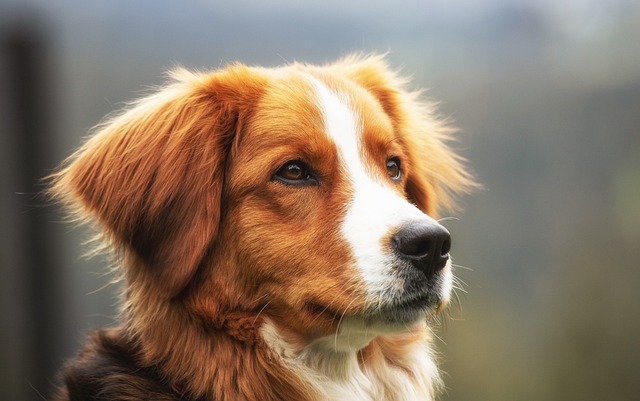
What is glaucoma in a dog?
You might notice your dog squinting more at mealtime or avoiding bright sunlight—these small changes could be early signs of a serious eye condition.
As our dogs enter old age, their every move touches our hearts even more. Suddenly noticing symptoms of coughing, retching, and nausea in elderly dogs, I believe every dog pooper would be extremely anxious. Behind these seemingly ordinary symptoms, there may be various health hazards hidden. Only by deeply understanding them can we better protect their health.
The physical functions of elderly dogs gradually decline, like a machine that has been used for many years, and all parts begin to wear out. Their respiratory mucosa has become fragile, and their cardiovascular function has also declined, making them more susceptible to various diseases, such as coughing and retching, which are warning signals from the body.
Respiratory tract infection is one of the common causes of cough, dry vomiting in elderly dogs. The invasion of pathogens such as bacteria, viruses, or mycoplasma can cause bronchitis and bronchitis. Older dogs have relatively low immunity and are more susceptible to infection during cold seasons or when exposed to pathogens. For example, when a dog is playing outdoors and accidentally inhales air containing bacteria, it may cause respiratory infections. Dogs with illnesses may cough frequently, sometimes accompanied by white or yellow phlegm, and in severe cases, may experience symptoms such as difficulty breathing and fever. Watching their uncomfortable expressions, we couldn't help but feel heartbroken.
Heart disease is also a common disease in elderly dogs, and coughing, dry vomiting, and nausea are often accompanying symptoms of heart disease. As dogs age, their hearts gradually weaken and their ability to contract decreases, leading to poor blood circulation. When the lungs are congested, it can stimulate the respiratory tract and cause coughing. This cough usually worsens after exercise, excitement, or nighttime rest in dogs, and may be accompanied by symptoms such as shortness of breath, mental fatigue, and decreased appetite. We may find that dogs that were once lively and active are now panting and coughing uncontrollably after a little movement. At this time, we must be highly alert to the possibility of heart disease.

In addition to respiratory infections and heart disease, some other factors may also cause coughing and vomiting in elderly dogs. For example, tracheal collapse is more common in small dogs, especially in breeds such as Poodle and Pomeranian. As age increases, the cartilage of the trachea gradually softens and loses its support, leading to tracheal stenosis or even collapse. When dogs are excited, agitated, or stimulated by external factors, they may experience severe coughing and sometimes make a goose like sound. In addition, allergic reactions should not be ignored, as pollen, dust, food, etc. can all become allergens. After dogs come into contact with allergens, they can cause respiratory allergies, such as coughing, sneezing, itching, and other symptoms.
When elderly dogs are found coughing and vomiting, we cannot take it lightly and should take them to the veterinarian in a timely manner. Veterinarians will accurately determine the cause of the disease through detailed consultations, physical examinations, blood tests, X-rays, echocardiography, and other methods. During the process of waiting for medical treatment, we should try to keep the dog quiet, avoid vigorous exercise and excessive excitement, and provide a warm and comfortable resting environment for it.
In terms of treatment and care, strict adherence to veterinary advice is necessary. If it is a respiratory infection, antibiotics, cough suppressants, and other medications may need to be used for treatment. For cough caused by heart disease, it may be necessary to use drugs such as cardiac stimulants and diuretics to improve heart function. At the same time, we should pay attention to the nutrition of dogs' diet, provide them with easily digestible, protein rich and vitamin rich foods, and enhance their resistance. Also, ensure that the dog has sufficient rest and avoids overexertion.
Old dogs are like our family, accompanying us through many wonderful times. When they have physical problems, we need to use more patience and care to take care of them. Every companionship and care is a manifestation of our deep love for them. I hope that through our efforts, these lovely children can still live a healthy and happy life in their later years, and let us continue to accompany them through more warm years.

You might notice your dog squinting more at mealtime or avoiding bright sunlight—these small changes could be early signs of a serious eye condition.

Let’s set the scene: It’s a sweltering Phoenix afternoon—105°F outside—and you rushed your 2-year-old Lab mix, Cooper, on a quick walk to “get it over with.”

Let’s get real: You’re in your Miami apartment, watching your 3-year-old Corgi, Loki, struggle to climb the stairs to your second-floor unit.

Many dog owners brush off occasional scratching as just “dog behavior,” but persistent itching often signals something more—like a food allergy.

You might first notice your dog scratching more than usual—chewing at their paws until the fur looks thin, or rubbing their face against the couch nonstop.

Let’s be real: You’re standing in your Chicago apartment, watching your 3-year-old Beagle, Max, huff and puff just to climb onto the couch.